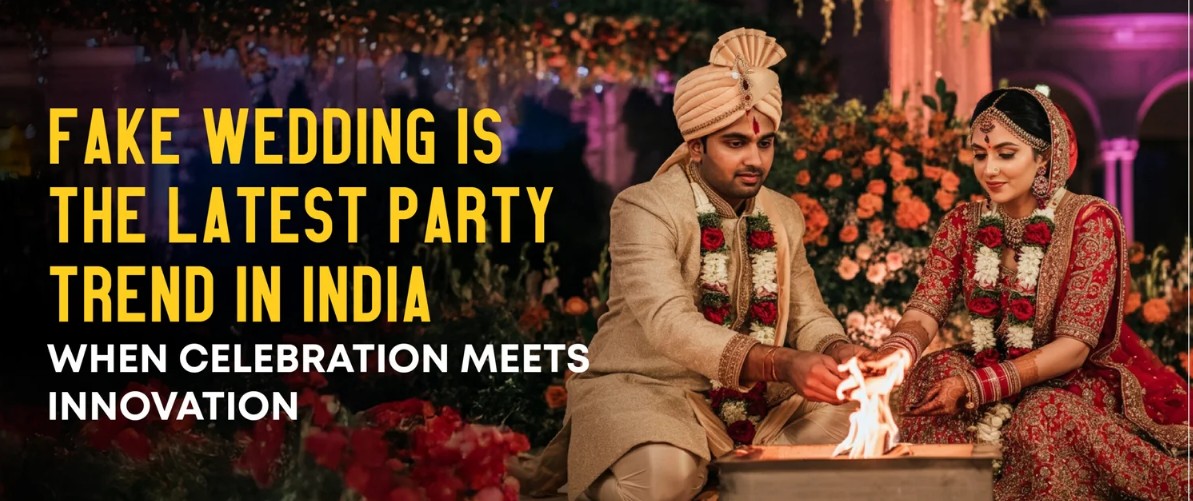 Image Source : Maven Socials
Image Source : Maven Socials
In an unusual twist on traditional celebrations, a new social trend is gaining momentum in India: people are paying hefty amounts, around Rs 10,000, to attend weddings where no bride or groom exists. These “fake weddings” are drawing curious guests and sparking conversations across the country about the changing face of social gatherings and what drives this growing phenomenon.
Understanding Fake Weddings
-
These events replicate every aspect of a traditional Indian wedding—the venue, decor, rituals, extravagant food, and entertainment—but without an actual couple getting married.
-
Invitations are sent out, guests dress up in their best attire, and festivities last long into the night, often matching or exceeding authentic weddings in scale and detail.
-
Organizers market these parties as unique experiences, blending socializing with cultural melodrama but absent of any matrimonial bond.
Why Are People Paying for This?
Several financial, social, and psychological factors are fueling interest:
Social Experience: For many, attending such elaborate “events” offers a rare chance to enjoy lavish food, music, and fashion that might otherwise be unaffordable or inaccessible.
Kinship and Networking: These gatherings serve as expansive social mixers, attracting professionals, artists, influencers, and businesspeople looking to network in a glittering atmosphere.
Escapism: In a world full of pressures and routine, fake weddings offer an opportunity for joyful respite, communal bonding, and a sense of participation in a culturally significant ritual—without the personal or familial stresses associated with actual weddings.
Economic Explanation: Bankers and sociologists highlight the increasing disposable income and exposure to global party cultures in India’s younger generation. They also point to disruptions from the pandemic and shifting marriage customs as background forces encouraging novel celebrations.
The Role of Organizers and Commercialization
Event management firms specializing in themed parties spotted an opportunity to create these elaborate faux weddings, setting prices that reflect real wedding costs but are spread across a larger guest list to keep individual contributions manageable.
Many packages include choreography of rituals, live DJs, professional photography, fashion consultants, and bespoke catering.
Some venues offer sponsorship deals, tapping branding opportunities in the fast-growing experiential event market.
Cultural and Social Implications
-
Critics argue these fake weddings blur the lines between sincerity and spectacle, commodifying deeply personal and traditional rites.
-
On the other hand, proponents see these as natural evolutions that allow tradition to survive in new, entertaining formats suited for modern urban life.
-
The trend is particularly popular in metro cities with a tech-savvy demographic open to novel experiences and globalization’s influence.
Expert Opinions and Future Outlook
-
Bankers note that India’s increasing youth population and rising urban middle class with discretionary spending power are key drivers behind this demand.
-
Event planners predict the market for such social experiments will continue growing, aligned with other customized luxury experiences.
-
Continued digital amplification through social media and influencer endorsements will likely accelerate adoption.
However, experts caution that sustainability and demand for authenticity will shape how long these trends last.
In Conclusion
While fake weddings may seem bizarre to some, they highlight how celebrations are evolving in India’s dynamic society. Rooted in a blend of culture, economics, and social aspirations, they provide a window into how Indians are reimagining traditional festivities for a fresh generation.
Source: Today’s reports from The Financial Express, Economic Times, NDTV
Advertisement
Advertisement







